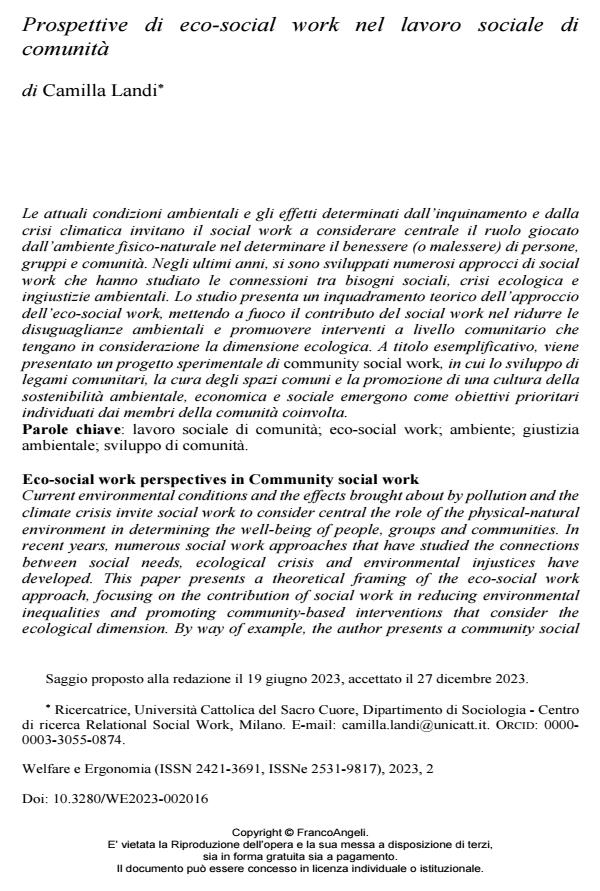Eco-social work perspectives in Community social work
Journal title WELFARE E ERGONOMIA
Author/s Camilla Landi
Publishing Year 2024 Issue 2023/2
Language Italian Pages 16 P. 225-240 File size 303 KB
DOI 10.3280/WE2023-002016
DOI is like a bar code for intellectual property: to have more infomation
click here
Below, you can see the article first page
If you want to buy this article in PDF format, you can do it, following the instructions to buy download credits

FrancoAngeli is member of Publishers International Linking Association, Inc (PILA), a not-for-profit association which run the CrossRef service enabling links to and from online scholarly content.
Current environmental conditions and the effects brought about by pollution and the climate crisis invite social work to consider central the role of the physical-natural environment in determining the well-being of people, groups and communities. In recent years, numerous social work approaches that have studied the connections between social needs, ecological crisis and environmental injustices have developed. This paper presents a theoretical framing of the eco-social work approach, focusing on the contribution of social work in reducing environmental inequalities and promoting community-based interventions that consider the ecological dimension. By way of example, the author presents a community social work experimental project in which the development of community ties, the care of common living environment and the promotion of a culture of environmental, economic and social sustainability emerge as priority goals identified by the community members involved.
Keywords: community social work; eco-social work; environment; environmental justice; community development.
- Ecosocial work in azione: il contributo dell'agricoltura sociale allo sviluppo sostenibile Maria Chiara Pedroni, Luca Pavani, Riccardo Bavastro, in WELFARE E ERGONOMIA 1/2025 pp.63
DOI: 10.3280/WE2025-001005 - Agency and Advocacy in Social Work: Promoting Social and Environmental Justice Through Professional Practice Elisa Matutini, Giacomo Chiara, Sonia Brondi, in Sustainability /2025 pp.9208
DOI: 10.3390/su17209208
Camilla Landi, Prospettive di eco-social work nel lavoro sociale di comunità in "WELFARE E ERGONOMIA" 2/2023, pp 225-240, DOI: 10.3280/WE2023-002016